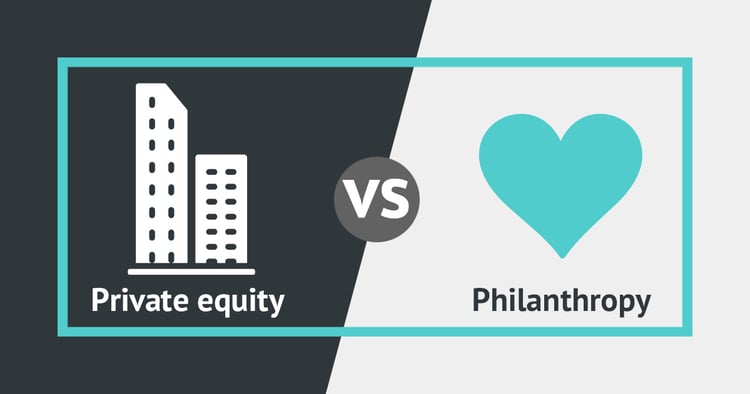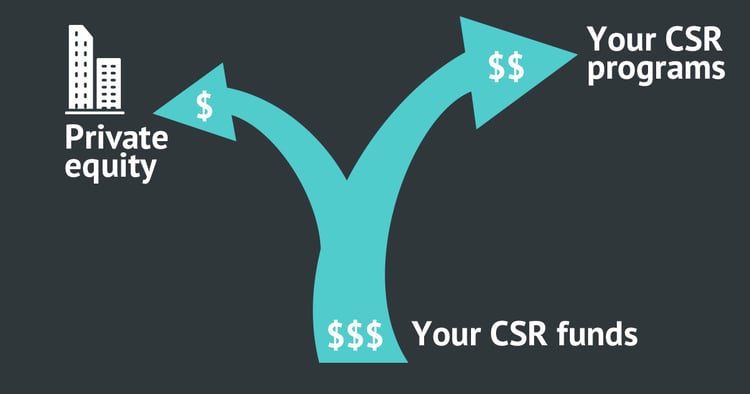Private equity and philanthropy: Exploring the implications

Written by Mike Reid, COO and co-founder of SmartSimple Software
Private equity ownership and the percentage-based pricing narrative
As the CEO of a software company operating in the not-for-profit sector, I want to delve further into a prevailing trend that warrants closer examination. Private equity ownership in the software industry, particularly in companies providing solutions for managing donations and grants, has become increasingly common. There is a narrative that tying software revenue to a percentage of the not-for-profit's program budget benefits all parties involved. However, we must critically evaluate this notion, taking into account additional dimensions that have significant implications for both software providers and not-for-profit organizations.
Exploitation of corporate social responsibility by private equity-owned software companies

While the alignment of software revenue with the program budget has been highlighted as a benefit, it is crucial to acknowledge that private equity firms often acquire software companies not only to leverage program funding but also to tap into the lucrative corporate social responsibility (CSR) spend. This includes initiatives such as employee giving programs and matching gift programs. By offering software solutions that facilitate and manage these programs, private equity-owned software companies can potentially extract a percentage of the not-for-profit organization's CSR spend, leading to substantial profits.
The importance of mission-driven software selection for not-for-profits
This expansion into the CSR realm introduces new considerations. Not-for-profit organizations must carefully evaluate the motivations and interests of software providers, ensuring that the primary focus remains on the organization's mission-driven goals rather than generating revenue for private equity investors. Moreover, as not-for-profit professionals, we must actively assess the potential impact on corporate social responsibility efforts, ensuring that they maintain transparency, fairness, and strategic alignment with the organization's objectives.
Critical considerations in choosing software providers for not-for-profit organizations
While private equity ownership and percentage-based pricing models are part of the industry landscape, we should be cognizant of the broader implications. Not-for-profit organizations should be vigilant in selecting software providers based on factors such as functionality, reliability, customer support, data security, and ethical considerations. We must actively engage in discussions and promote transparency within the sector to ensure that technology solutions enhance the organization's social impact while upholding the values and integrity of the not-for-profit sector.
Promoting open dialogue on private equity ownership and its impact on nonprofits
Let us foster a collaborative dialogue that examines the multifaceted aspects of private equity ownership, percentage-based pricing, and their impact on corporate social responsibility initiatives. Together, we can drive positive change and empower not-for-profit organizations to make informed decisions that align with their missions and values.